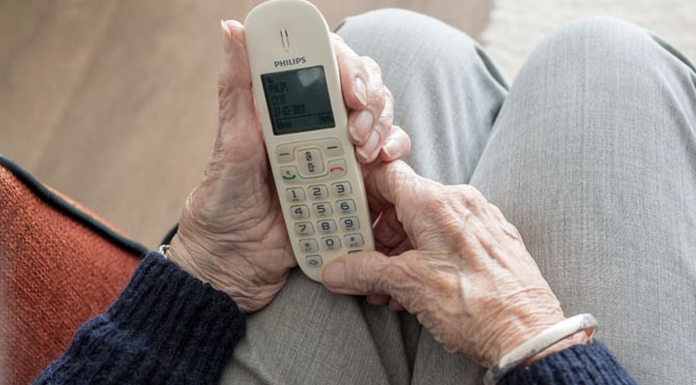 No federal agency will call, text or email requesting Social Security, banking or any other personally identifying information. If you receive such a call, hang up.
No federal agency will call, text or email requesting Social Security, banking or any other personally identifying information. If you receive such a call, hang up.
Officials are urging aging adults to take steps to protect themselves from scams related to the COVID-19 pandemic.
All people also are encouraged to assist aging adults in protecting themselves from scams to the fullest and safest extent possible.
In recent weeks, scammers have used the uncertainty and isolation brought about by the COVID-19 pandemic to attempt to obtain personal identifying information and assets of aging adults across the country.
Below is a list of some of the scams currently aimed at aging adults, as well as recommendations on what to do if you encounter them.
Social Security scam
Scammers claiming to be from the Social Security Administration (SSA) call a recipient and claim that due to the closing of SSA offices, the recipient’s benefits will be interrupted unless he or she provides personal identifying information, such as a Social Security or bank account number.
The truth is the SSA, despite its closure of some offices, has advised these closures should not interrupt receipt of benefits. Importantly, the SSA will not call a recipient unexpectedly and ask for personal information over the phone. If you receive a call like this, hang up, and report it to the SSA: https://oig.ssa.gov.
Medical scams
Scammers are calling aging adults pretending to be a family member (often a grandson or granddaughter) and claiming they are in need of money to treat COVID-19 symptoms. Sometimes, the caller will ask the aging adult to send gift cards or cash for payment.
These types of calls are called “Grandparent scams.” They can be frightening and distressing. If you receive a call like this, you should hang up immediately.
You are encouraged to reach out to the alleged family member or other trusted individual using a known telephone number to verify. Further, you should be skeptical of any random telephone call you receive requesting money, and in particular gift cards and cash.
Scammers are contacting individuals by phone, email and sometimes in-person, offering COVID-19 home test kits, medicines or vaccinations.
Currently, no vaccines, pills, potions, lotions, medications or other prescription or over-the-counter products are available to treat or cure coronavirus disease.
This applies to offers made online, in stores, by electronic message or over the phone. Do not allow any individual offering these products into your home. If you encounter someone claiming to offer such products, contact local law enforcement.
Stimulus scams
With many aging adults set to receive stimulus payments from the federal government, scammers are calling, texting and emailing aging adults claiming to work for federal agencies, such as the Internal Revenue Service, and that they are in need of the aging adult’s personal identifying information prior to stimulus payment disbursement.
No federal agency will call, text or email requesting Social Security, banking or any other personal identifying information. If you receive such a call, hang up.
As with any scam call, do not push any buttons for “more information.” If you receive a text message or email of this nature, delete it and do not click on any links within the message.
Fake charity scams
Scammers are contacting aging adults claiming to be from reputable charities or otherwise fictitious charitable organizations, seeking donations for a variety of causes related to the COVID-19 pandemic.
Many of these scammers request payment in the form of gift cards or electronic currency, such as bitcoin.
You should be skeptical if you receive a call unexpectedly from a “charity” requesting a donation. Donate only to charities you know and trust and only after you independently verify the payment/donation system is safe and secure.
How to protect yourself and aging adults:
All people are encouraged to assist aging adults, and specifically those who may be especially vulnerable, in their efforts to avoid falling victim to these and all other scams. Recommendations for assistance include:
- For those who care for an aging parent or other adult, practicing added vigilance and not providing the personal, identifiable information of an aging adult, without verifying the recipient’s identity;
- While maintaining appropriate social distancing and adhering to the emergency orders, checking in with aging friends and relatives by phone or other electronic means;
- Asking questions of aging friends and relatives about what they are doing, who they have heard from, and if they need supplies or assistance; and
- Ultimately assisting any aging adult if and when there is a reasonable belief that they have fallen victim to a scam.
Stay informed
For more information about Scams and how to protect yourself: www.doj.nh.gov/covid-19-scams and www.consumer.ftc.gov.
Source: Attorney General Gordon J. MacDonald, New Hampshire Department of Justice



